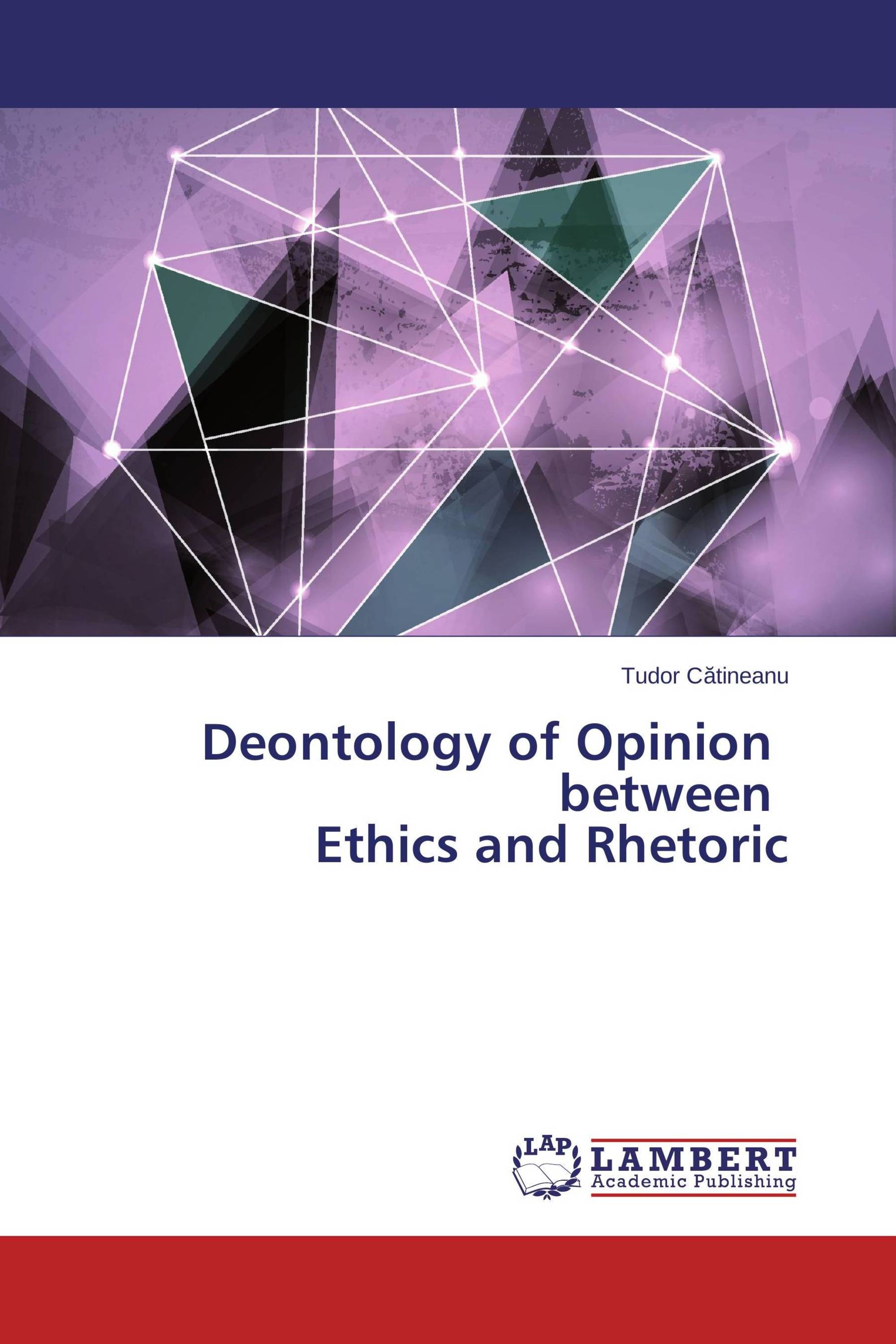Deontology of Opinion between Ethics and Rhetoric
LAP Lambert Academic Publishing ( 25.07.2014 )
€ 48,90
Opinions cannot express Truth, as they are not cognitive enunciations, subjectively associated with certainty (C1). Opinions can only tell about what "seems to be true", but is only Verisimilar or Non Verisimilar in different degrees. They are subjectively correlated to our convictions (C2) and/or credence/faith (C3). Therefore, the opinions can't be demonstrated but only argued in endless pro-con dialogues and controversies. What can set borders to this infinite “Rhetorical Empire”, renewed by Perelman and extended by Coorebyter? The answer is: Deontology, seen as the intersection area between the ethical circle, with its moral norms, and different particular circles, with their specific professional norms. The fundamental principle of Deontology is Correctness that can be expressed in Rules stipulating how to distinguish between correct opinions and the incorrect ones. There are 18 Rules - ordered by means of a Seven Levels’ Matrix of Thought - that configure a Deontological Code of Opinion. This is a Meta Code that can be used in setting up particular Deontological Codes, ranging from the fields of Politics, Justice, Education, Scientific Research, to Mass Media, Sports etc.
Kitap detayları: |
|
|
ISBN-13: |
978-3-659-58106-9 |
|
ISBN-10: |
3659581062 |
|
EAN: |
9783659581069 |
|
Kitabın dili: |
English |
|
Yazar: |
Tudor Cătineanu |
|
Sayfa sayısı: |
268 |
|
Yayın tarihi: |
25.07.2014 |
|
Kategori: |
İletişim bilimleri |




